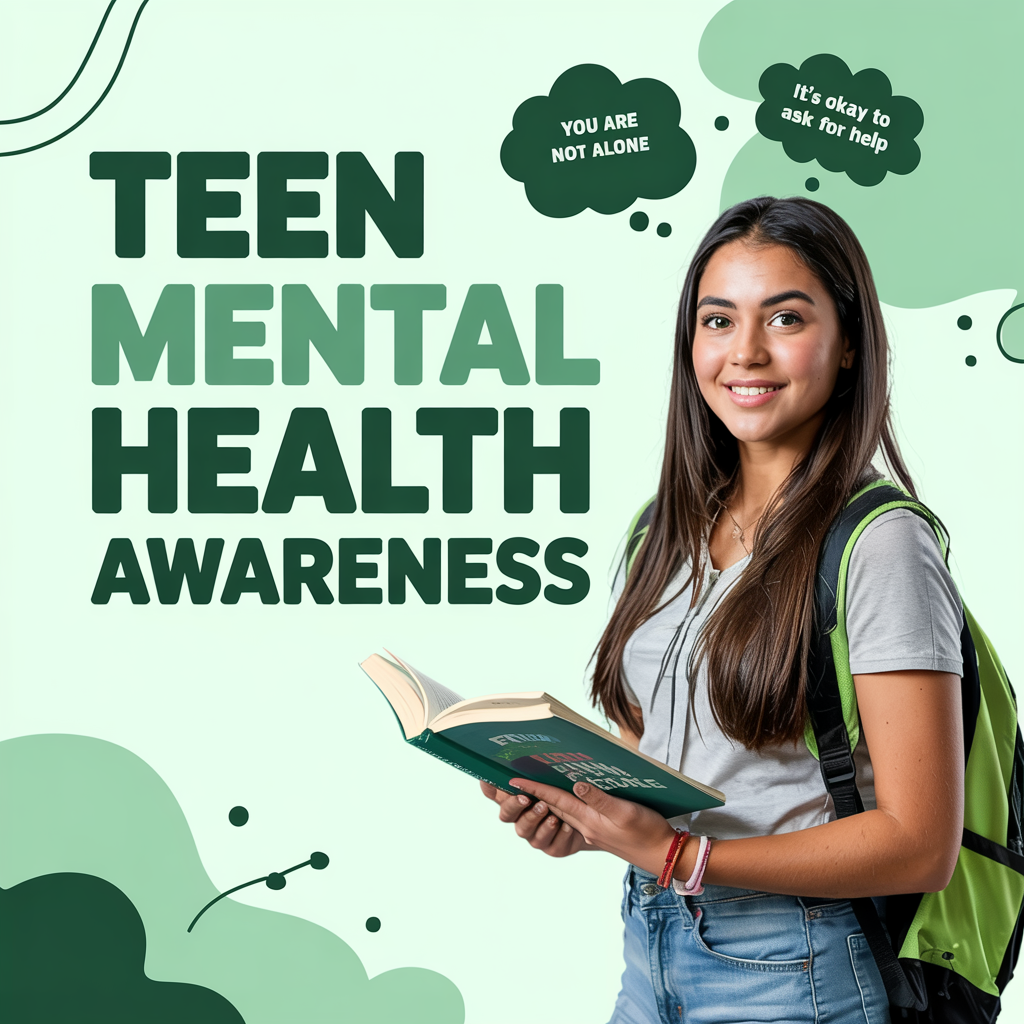It’s Okay to Not Be Okay: Normalizing Mental Health Conversations & Reducing Stigma

Life — especially in your teen years — can be a rollercoaster -full of ups and downs. Feeling stressed, anxious, sad, or overwhelmed from time to time is completely normal.
Raising mental health awareness starts with one powerful reminder: it’s okay to not be okay. The more we normalize talking about mental health and break the stigma, the easier it becomes for everyone to ask for help when they need it.
Mental Health IS Health
Think about it: if you broke your arm, you’d go to a doctor without shame. Mental health is just like physical health – it’s part of your overall well-being. Everyone has mental health, and just like physical health, it can fluctuate. Sometimes you feel great, other times you struggle. Experiencing mental health challenges, like anxiety or depression, doesn’t mean you’re weak or flawed; it means you’re human.
The Problem with Stigma
Mental health stigma refers to negative attitudes, discrimination, or prejudice against people with mental health conditions. Stigma creates shame and silence. It can make people afraid to:
- Talk about their struggles.
- Seek help from friends, family, or professionals.
- Be open about their experiences for fear of judgment.
Reducing mental health stigma is essential for improving teen mental wellness.
What Does “It’s Okay to Not Be Okay” Mean?
This phrase is a reminder that:
- Your feelings are valid: Whatever you’re feeling – sadness, anxiety, frustration, confusion – is real and deserves attention.
- Struggling is normal: Everyone faces challenges. You don’t have to pretend everything is perfect all the time.
- You don’t have to go through it alone: Help and support are available.
- Seeking help is a sign of strength, not weakness.
Understanding the okay not to be okay meaning is the first step toward acceptance and seeking support.
Normalizing Mental Health Talk: How We Can Help
We can all play a part in making it easier to talk about mental health:
Talk Openly (When Comfortable)
- Share your own feelings appropriately with trusted friends or family. Hearing others talk honestly can make people feel less alone.
Listen Without Judgment
- If a friend opens up to you, listen actively and empathetically. Avoid minimizing their feelings or offering quick fixes. Just being there matters.
Choose Your Words Carefully
- Avoid using mental health conditions as adjectives (e.g., calling someone “so bipolar”) or making light of serious issues. Use respectful language.
Educate Yourself and Others
- Learn basic facts about common mental health conditions to combat myths and misunderstandings. Share accurate information.
Resources like Cirkled in can also help teens build confidence and stay on top of their personal and academic development.
Normalizing mental health talk starts with everyday conversations.
The Importance of Seeking Mental Health Help
Just like you’d see a doctor for a physical illness, seeking professional help for mental health challenges is important. Options include:
- School counselors
- Therapists or psychologists
- Doctors
- Trusted adults (parents, teachers, family members)
- Mental health hotlines or text lines
Reaching out is a brave and positive step towards feeling better.
Final Thought: Your Feelings Are Valid
Promoting the mental health awareness teens deserve, means creating a culture where everyone understands that mental health really matters.
Remember — it’s truly okay not to be okay. By normalizing mental health conversations and breaking the stigma, we make it easier for people to speak up, acknowledge what they’re going through, and get the help they need.
Your feelings are valid, and support is always within reach.
Need more tips on college applications, scholarships, or just how to survive this whole process? Cirkled In has your back—check out Cirkled In resources to help you through every step of your college journey! Check out Cirkled In and start owning your future today!



4 Comments
Mercy · November 11, 2025 at 10:27 pm
Good work
Amy S · November 19, 2025 at 12:41 pm
Appreciate it, Mercy! 😊 Every conversation helps break the stigma—glad you’re here for it!
Whittall · December 4, 2025 at 8:46 pm
You’re raising the bar with posts like this.
Amy S · December 12, 2025 at 12:58 pm
Appreciate that! 🙌 Normalizing mental health is the goal—one post at a time. 💛